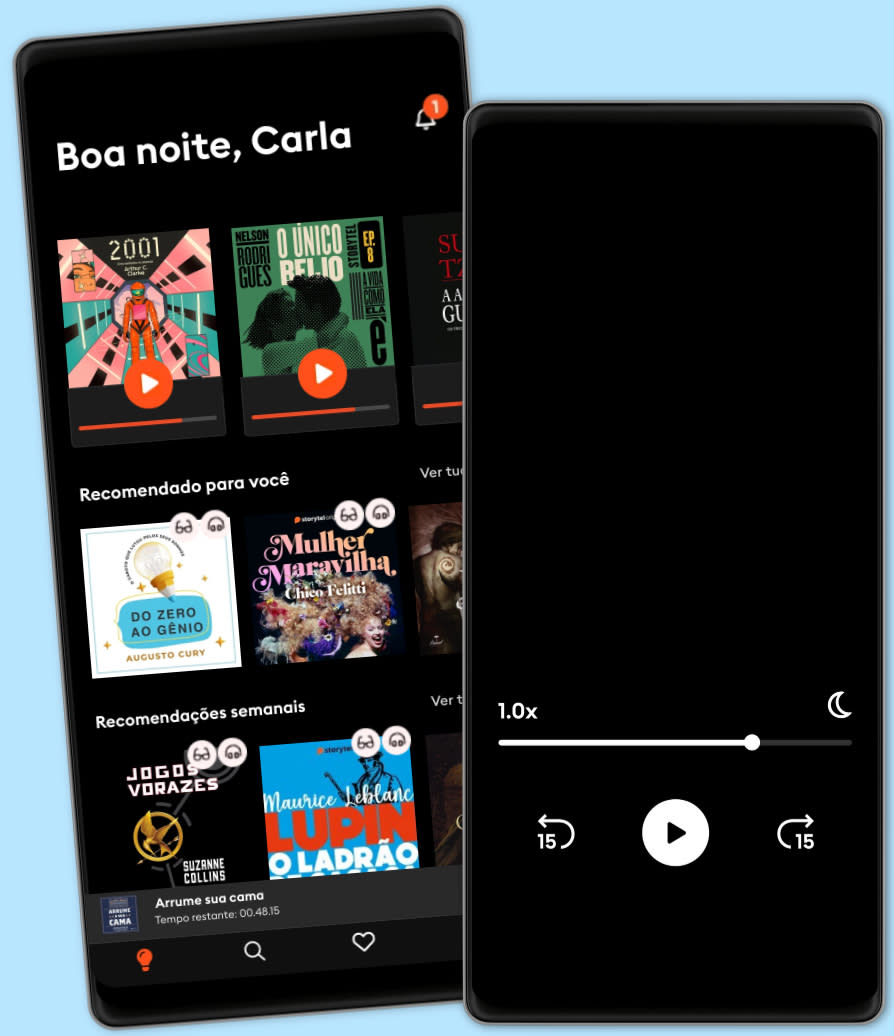Ouça e leia
Entre em um mundo infinito de histórias
- Ler e ouvir tanto quanto você quiser
- Com mais de 500.000 títulos
- Títulos exclusivos + Storytel Originals
- 7 dias de teste gratuito, depois R$19,90/mês
- Fácil de cancelar a qualquer momento

EPISODE 3 : Who is Exchanging?
- por
- Com:
- Editora
- 5 Avaliações
4.8
- Séries
3 of 6
- Duração
- 1H 26min
- Idiomas
- Inglês
- Format
- Categoria
Economia & Negócios
Having understood the exchange and what is exchanged, let us understand who participates in the exchange. This is the unique feature of Dharmic Leadership and separates the Yagna from other forms of exchange such as barter and contract.
In barter, only goods and services are exchanged. Personal beliefs do not matter. In contract, beliefs are either false or true. True beliefs make us respect the law, ethics, and morality. In Yagna, inclusion of other people’s beliefs allows our beliefs to expand and uncrumple the mind infinitely. As the mind expands, we become generous because we are content and content because we are ambitious. This makes Yagna an exercise in transformation unlike contract, which is at best, an exercise in conversion. As belief shifts, so does behavior, and so does business.
In Indian mythology, the female form is given to the constituents of the cultural body, that which can be exchanged. The male form is given to the psychological body, that which can transform. Brahma is who we are by default. We consume resources, power, and knowledge and, so we chase the goddesses relentlessly. Discontentment makes us Shiva who grows indifferent to the goddess until he realizes her value. Finally, as Vishnu, we discover that we are also goddesses, that which can be consumed by others. Here gender is used as a metaphor to convey the complex relationship between mind and matter. Do we wonder what comes first: hunger or food? This gives rise to the question, who came first: god or goddess? Rig Veda says, ‘They gave birth to each other, Daksha to Aditi and Aditi to Daksha.’
In this chapter, we will study ambition through stories of Brahma and his sons, contentment through stories of Shiva, and generosity through stories of Vishnu.
Data de lançamento
Audiolivros: 15 de junho de 2022
Ebook: 2 de julho de 2022
Outros também usufruíram...
- Eat That Frog! Third Edition: 21 Great Ways to Stop Procrastinating and Get More Done in Less Time Brian Tracy
- The 5AM Club: Own Your Morning. Elevate Your Life. Robin Sharma
- Corporate Chanakya Dr.Radhakrishnan Pillai
- Practicing the Power of Now: Essential Teachings, Meditations, and Exercises from the Power of Now Eckart Tolle
- EPISODE 1 : How to Exchange? Devdutt Pattanaik
- Teachings of Gaur Gopal Das Amol Raikar
- Dharma Artha Kama Moksha: 40 Insights into Happiness Devdutt Pattanaik
- The Power of Your Subconscious Mind Joseph Murphy
- The Achievement Habit: Stop Wishing, Start Doing, and Take Command of Your Life Bernard Roth
- Chanakya in You Dr.Radhakrishnan Pillai
- Resumo De Habitos Atomicos - Baseado No Livro De James Clear Biblioteca Rapida
4.3
- 18 Maneiras De Ser Uma Pessoa Mais Interessante Tom Hope
4
- O sonho de um homem ridículo Fiódor Dostoiévski
4.8
- Pratique o poder do "Eu posso" Bruno Gimenes
4.6
- Harry Potter e a Pedra Filosofal J.K. Rowling
4.9
- Quarta Asa Rebecca Yarros
4.6
- Gerencie suas emoções Augusto Cury
4.5
- 10 Maneiras de manter o foco James Fries
3.9
- Arrume sua cama William McRaven
4.5
- A lenda de Ruff Ghanor - Volume 1: O garoto cabra Leonel Caldela
4.8
- Resumo De O Poder Do Agora - Baseado No Livro De Eckhart Tolle Biblioteca Rapida
4
- Jogos vorazes Suzanne Collins
4.8
- A cantiga dos pássaros e das serpentes Suzanne Collins
4.6
- Mais esperto que o diabo: O mistério revelado da liberdade e do sucesso Napoleon Hill
4.7
- Ozob - Volume 1: Protocolo Molotov Leonel Caldela
4.8
Português
Brasil